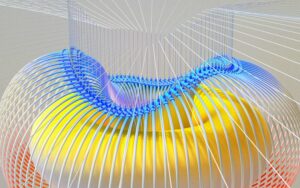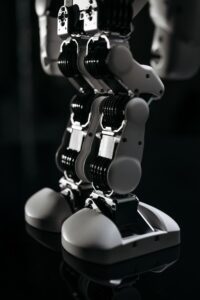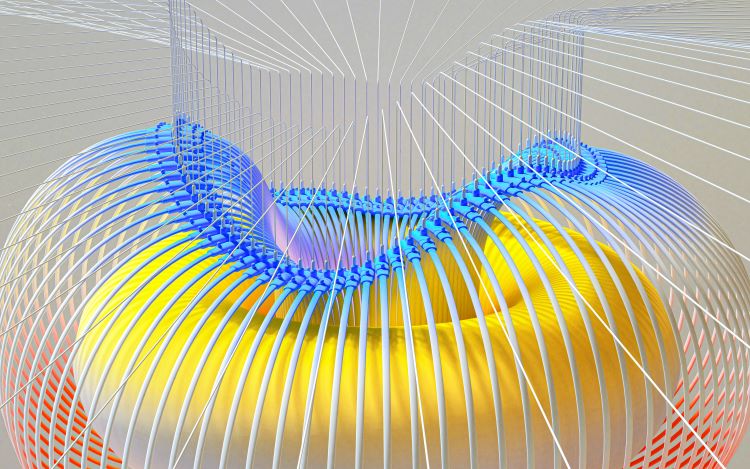Introduction
Artificial intelligence has progressed at incredible speed, transformed industries, and impacted on how we live and work. Looking forward as we gaze into the future, we need to explore how AI trends and influence across various sectors.
The aim of this paper is to delve into what the future holds for artificial intelligence (AI). This includes an analysis of recent developments related to machine learning, NLP, CV robotics, and AI ethics respectively. Learning about such trends in order to utilize AI to create a competitive advantage for businesses and individuals is useful.
Artificial intelligence will experience considerable developments in the field of computer vision. The area revolves around giving sight to AI systems so that they can understand images. Improved object recognition, image classification, and image generation would help AI machines see and understand the information better.
Robotics and automated manufacturing will further define the development of artificial intelligence in the future. The incorporation of artificial intelligence in robotics will intensify industrial automation in diverse sectors. This is referred to as collaborative robots or cobots that work together with people hence raising production and safety. This will be seen in manufacturing where robots used to perform complex tasks will show a great degree of robustness to change. It is anticipated that service robots shall be applied in healthcare, hospitality, and many other services-based industries.
The integration of AI and IoT will create an excellent synergy. Applying AI algorithms to the generated data by IoT devices will facilitate predictive analytics, intelligent decisions, and autonomy. This will open doors for intelligent city concepts, well-managed power grids, and individualized healthcare technologies.
Finally, AI is full of possibilities that can revolutionize various sectors in many ways. Through examination of emerging trends and predictions, this is how we equip ourselves to accept AI influence and utilize its transformative energy? Businesses, as well as individual players, should remain aware of AI development and exploit its totality.

Advancements in Machine Learning
AI is built on machine learning whose growth will become very crucial. The sophistication of deep learning algorithms will increase making AI systems able to learn and fit into massive sets of data. Another approach that will become more popular is what is known as transfer learning which means the model can use knowledge acquired in one sphere to be applied in a different field. The development of intelligent autonomous agents is possible through the continuous evolution of reinforcement learning as it occurs.
Progress in Natural Language Processing
Computers are able to comprehend and construct natural language through the help of NLP. We can expect tremendous advancements in NLP through AI that will be able to understand, translate, or do sentiment analysis on the text in the coming years. The conversational AI that includes the chatbots and virtual assistants will also be increasingly intelligent and human-like resulting in the transformation of customer services and communicating.
Advancements in Computer Vision
Computer vision provides AI systems with tools for the interpretation and understanding of visual data. Developments in this will lead to transformations in sectors like autonomous driving, the public domain, and healthcare. This will enhance object recognition, image classification, as well as image generation thus improving the AI system’s ability to perceive and interpret visual information.
Rise of Robotics and Automation
Robotics will be more powered by artificial intelligence and, consequently, there will be a large amount of automatization in many areas of business and other sectors of life. Cobots will share spaces with humans in a way that improves productivity while ensuring safety. Robots in future manufacturing will become evermore flexible, variable, and perform sophisticated functions. Service robots will also find use in the health sector as well as the hospitality industry.
Ethical Considerations and AI Governance
Ethical issues and governance frameworks will be important as AI becomes more common. Issues of biases, privacy, and employment may arise if people feel that the system is not transparent or open. The future will require that governments and organizations put in place regulations and guidelines for the accountable and ethical application of AI.
Combining artificial intelligence and IoT.
The combination of AI and the Internet of Things (IoT) will give birth to an astounding partnership. This will allow AI algorithms to efficiently process and analyze huge amounts of data coming from these IoT devices. This will lead to predictive analyses, intelligent decision-making as well as automation.
There is a lot that AI can achieve together with IoT across different fields. New smart towns will grow, using AI’s ability to optimize the city’s infrastructure and improve life standards. With AI-driven efficient energy management systems, it will be possible to minimize the wastage of energy for more effective uses. In addition, AI is capable of analyzing data obtained from patient’s health records and giving customized prescriptions for effective healthcare solutions for each individual.
The combination of AI and IoT would lead to the transformation of sectors based on predictive analytics. Businesses that adopt this kind of platform will be able to understand how consumers behave and use data in decision-making besides providing relevant services to their clients. Automation using artificial intelligence technology will speed up operations, improve productivity, revolutionize industries like production, supply chain management, and transport.
Finally, the combination of AI and IoT is a great prospect. With AI algorithms to process and analyze IoT data in place, predictive analytics, smart decisions, and automation can happen. The resultant smart cities coupled with the smart grid and intelligent transport system will enhance smart homes that will be equipped with personalized health facilities. By observing strict ethical and privacy standards, integrated artificial intelligence and Internet of Things (IoT) technologies will reshape a world of interconnected, intelligent systems that make life easier in so many ways.

Conclusion
Looking at the future, artificial intelligence can bring about radical changes in various fields and society as a whole. Machinal learning, natural language processing, computer vision, and robotic technologies are going to lead to changes in the landscape of modern artificial intelligence creating innovations and progress. Nevertheless, alongside these developments, it is important that there should be ethical guidelines and a regulatory system as we move forward to create ethically driven AI systems.
As a result, business persons and individual citizens should embrace opportunities arising in the fast-moving AI arena. AI provides an array of benefits including better customer experience, greater productivity, and higher efficiency. We must keep tabs on the new advances and developments of AI so that we can use it accordingly and have a meaningful impact.
The development of intelligent machines will be dynamic and exciting. With this, we may be able to know the upcoming trends that may cause disruptions in our operations, leading to positioning ourselves in relation to how AI could change our business context.
With increasing advancements in AI technologies, we ought to support accountable and moral AI applications for a better tomorrow for mankind. Embracing the possibilities inherent in AI while exercising caution in directing its further evolution will bring us closer to a bright and rewarding tomorrow.

